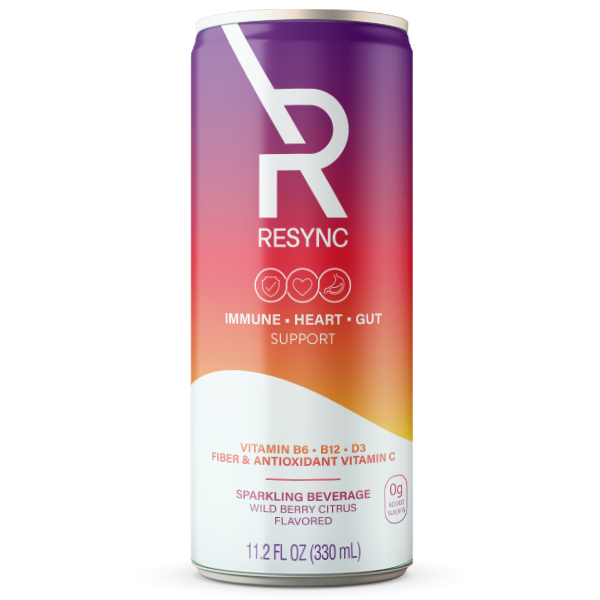Resync
1-03-2022
Is Marine Collagen Good for You?

Marine collagen peptides promise a solution to sustainability while claiming unique benefits. In this post, I’ll give you the facts on marine collagen powder so you can decide for yourself if the reality lives up to the hype.
Here are your questions that I answer in this article:
- What is marine collagen?
- What are the benefits of marine collagen?
- Is marine collagen safe? Does fish collagen have BMAA toxin?
- Who should take marine collagen peptides? Who shouldn’t?
What is marine collagen powder?
Marine collagen peptides are made in the same way that other collagen is. Fish scales and bones, crustaceans, and other sea creatures are boiled down to make gelatin.
That gelatin is treated to create hydrolyzed collagen peptides, which are smaller proteins that your body can use more effectively than the larger proteins in gelatin.
People tend to think the benefits of marine collagen are better than other sources for a few reasons.
Some of the claims I’ve seen are:
- Marine collagen is more effective for joint health and skin health than other collagen sources.
- Marine collagen is more sustainable than other collagen.
- Marine collagen is a more humane source of collagen

However, for every “pro”, there’s a “con”. Criticism of marine collagen goes along the lines of:
- Research shows that marine collagen is not clinically better than other sources, and may in fact be worse for skin health and beauty.
- The industry supporting marine collagen is not very robust, making marine collagen more expensive, less consistent, and less available than other collagen sources.
- Marine collagen can have a characteristic “fishy” smell
- Most marine collagen supplements are not certified sustainable
- And probably most importantly, marine collagen is rarely tested for BMAA, a toxin that might be linked to neurological conditions like ALS. Read further to learn more.
What are the benefits of collagen powder?
Because the structure of your aquatic collagen is almost the same as other conventional collagen sources, when you look at the big picture the benefits are similar.
- Collagen is known to decrease joint pain and improve mobility in people with arthritis as well as healthy individuals with joint pain.
- Collagen improves skin moisture, decreases fine wrinkles, and may strengthen hair, skin, and nails.
- Collagen protein can help your fitness goals by improving muscle mass and helping as part of a targeted weight loss strategy.
- All types of collagen are high in glycine, proline, and hydroxyproline, plus some other critical amino acids. This means that collagen might be good for helping you sleep better.
The bird’s eye view is great, sure; you’ve got to know what should be expected in most people.
If you want to know more about the specifics of collagen supplementation, check out our article: Is Collagen Good for your Skin?
But I know you came here for the details on maritime collagen.
So really, is marine collagen better than pork or beef collagen?
Let’s take a look at what the science says.
One of the few studies that pits fish collagen against pork collagen head-to-head was done at a private lab in Japan. The results showed that pork-based (“porcine”) collagen increased skin moisture by 28% compared to the inactive treatment.
What about the fish collagen? It improved skin moisture too, but only by 12%.
What does this say? That fish collagen can help with your beauty goals, but porcine (pork) collagen may be more than twice as effective.
It seems that fish collagen hasn’t broken out of the cosmetic supplements research field yet, so subscribe to our channel and we’ll let you know when we see a new study that sheds light on other uses of marine collagen!

- Fish collagen can help with your beauty goals, but porcine (pork) collagen may be more than twice as effective.

Before You Buy Marine Collagen - Watch This!
Like & Subscribe to our youTube channel for educational videos on the latest hot topics in the industry
VISIT YOUTUBE CHANNELIs Marine Collagen Safe?
So collagen from underwater sources may be good for skin health, but you might be wondering if it’s as safe as other collagen sources.
With mercury, pollutants, and other toxins in our waters being a concern, it’s no surprise that you might be thinking twice about reaching for any supplement that comes from the ocean.
The good news is that, since mercury builds up in that fat of fish, and since collagen supplements are made of purified protein, there’s a low risk for mercury contamination in your marine collagen supplement.
That being said, contamination in protein supplements is a common issue. Research by watchdogs ConsumerLabs and Clean Label Project show that heavy metals like mercury, lead, arsenic, and cadmium are almost always found in plant-based protein powders - even though they’re also just protein extracts or concentrates.
So even though there’s no conclusive evidence on the topic, I’m going to play it safe and avoid supplements like fish collagen that have a high potential of contamination.Another toxin getting big exposure in the scientific and popular communities is beta-Methylamino-alanine, or BMAA for short. BMAA might be linked with some types of neurodegenerative diseases like ALS (Amyotrophic lateral sclerosis).
It’s unclear whether BMAA actually causes neurological issues, but studies show that it may play a contributing role. Regardless, as a neurotoxin it’s an important contaminant to pay attention to.
The problem? Nobody seems to be testing for BMAA in supplements that are made from seafood or sea creatures.
A side note: not all blue-green algae - the so-called superfood, spirulina - produce BMAA. If you think you need a cyanobacteria supplement, make sure it’s the best quality you can get in order to avoid BMAA in spirulina!
Although numerous studies do show that BMAA only accumulates in some ocean life and not in others (see our table below), it’s pretty darn hard to figure out where your marine collagen comes from!
 TO LEARN MORE ON THAT SUBJECT CLICK HERE
TO LEARN MORE ON THAT SUBJECT CLICK HERE

If you’re worried about toxins in your marine-based supplements or side-effects of marine collagen, there’s a couple things you can do.
First, get in touch with your supplement company. If they can’t tell you where their fish comes from or if their products are third-party tested for contamination and also post-production (which is the most important), then they probably don’t have your safety in mind!
It doesn’t hurt to ask, but it might hurt to not ask! So if you’re in the market for a new supplement company - one that values transparency and quality over profits - there are ways to make sure your products are free from contamination.
Look for a third-party certification somewhere on the product label. There are a number of them, and any is better than none, but we only settle for the best.
NSF certified supplements are certified to contain what they say they do, in addition to being free from hundreds of known banned substances and contaminants.
This is the best supplement certification on the market, and it’s proudly held by our Resync Recovery Blend and Resync Collagen Peptides.
The next tier of certifications includes BSCG and Informed Sport certifications.
Other certifications (which are not even close to as specific in their testing as the above companies) include Consumer Labs, Underwriter Laboratories, and USP. These are better than no testing, but are not sufficient if you’re looking for the best of the best!


Is Marine Collagen Practical?
Now let’s take a step back and look at the practical issues of using a marine collagen.
Principally, I’m concerned with price and quality. I’m willing to pay a few extra bucks for the peace of mind I get when choosing a top-shelf supplement; but I hate being swindled into buying an expensive product that doesn’t provide any real advantage over some other product.
Consistency of Marine Collagen
When it comes to marine collagen protein, take a look at consistency. Most marine collagen supplement powders are made from a variety of maritime sources which makes for an inconsistent product that might not work all the time.
Being in the industry, I can tell you that even the companies that farm the fish and process the collagen don’t have strict control on the source and consistency of their product.
It’s rare that you actually know what kind of fish is in your supplement, where that fish was caught, and under what conditions the collagen was produced.
With such a patchwork pipeline from fish to bottle, it’s no wonder that companies can run out of supply fairly frequently - certainly more often than a pork-, beef-, or chicken-based collagen supplement.
Sustainability of Marine Collagen
A lot of companies out there claim that fish collagen is more sustainable than collagen from mammals.
I beg to differ.
Yes, fish collagen plays a big role in the sustainability movement. Collagen is made of the leftover parts of the animal that nobody wants to eat (even though from an evolutionary perspective, perhaps we should be eating those odd and ends; I’ll save that topic for another blog).
Whether you're getting your collagen from bovine hide and hooves or from fish scales and bones, you’re supporting a sustainable industry.
If you want to make your dollar go further when it comes to environmental impact, look for a certified wild-caught or grass-fed collagen source.
The collagen in Resync comes from quality-certified and predominantly grass-fed sources, so you know your making an environmentally-friendly choice when you take Resync collagen blend.
We want to hear from you!
Want the practical details on how to eat to support your heart health, beauty, and energy?
Subscribe to our feed and never miss our best content!
While some companies try to sell you stuff with clickbait and fake news, we make sure to back up our claims with hard data.
We believe that when you have the right information, you’re empowered to make the best decision for yourself. That’s why we break down the complex science of nutrition and supplements into practical takeaways you can use today.
Want to learn more about a topic? Let us know by contacting us or getting in touch on social media!
RESYNC COLLAGEN PEPTIDES
Collagen Protein Types I & III With Nitric Oxide Reds - Support Healthy Circulation & Strength of Every Layer of Your Body
LEARN MORE
Author

Detrick Snyder
Tags
Collagen
Nutrition





